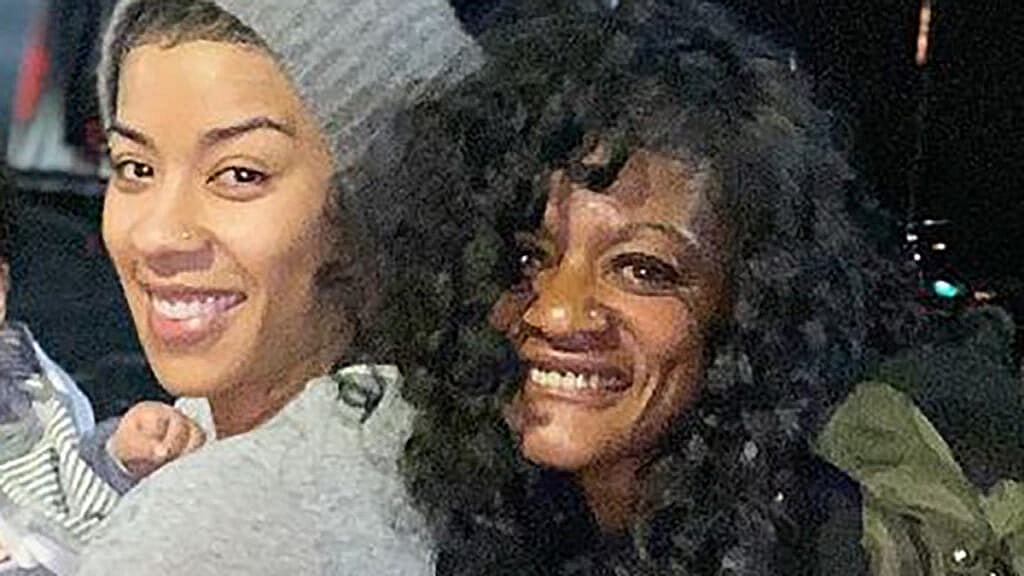Frankie Lons died of a reported overdose on July 18 at the age of 61.
In a heartbreaking message shared via Instagram, Lons’ daughter, Elite Noel, shared, “Worse pain ever…to see my mama in a body bag on her birthday!” After a years-long, very public battle with addiction, Lons’ death is a somber reminder of the lasting effects the disease can have on families.
Who was Frankie Lons
In 2006, Lons was introduced to the world as singer Keyshia Cole’s mother in her BET reality series, Keyshia Cole: The Way It Is. We continued to see Lons in multiple spin-offs over the years, including her own 2009 series Frankie & Neffe, which also starred one of her other daughters, Neffeteria Pugh.
Throughout her life in the public eye, Lons frequently discussed her experience with addiction openly, offering sobering but honest commentary around her struggles and her wishes for her family.

“If I die today, you’re going to move on and you’ve got to make it. You’ve got to live for Keyshia,” she said on Cole’s show, Keyshia Cole: My New Life, in 2019. “You have to live for you and your family, not nobody else. You don’t have to do nothin’ but die and pay taxes, but you have to move on if anything happens to me.”
“At the end of the day, you’ll see me later,” she continued. “Up there. Imma be always where you can find me. Even when God calls me. A mother’s love will always protect you.”
Addiction in the Black American community
Addiction and substance abuse is an issue that impacts people from all backgrounds and walks of life. It doesn’t seem to discriminate, yet there remains a stigma that causes many to carry shame when it comes to the disease.
According to the 2019 National Survey on Drug Use and Health, 2.3 million Black Americans were struggling with a substance use disorder in 2019 alone. And while alcohol abuse is slightly less common among Black Americans compared to other ethnicities, data shows that illicit drug use among Black Americans is slightly higher than the national average —20.4% compared to 18.2%.
While Black Americans report higher instances of drug use, they also report a higher likelihood of seeking professional treatment. But due to several factors, a study found that Black Americans are less likely to complete or sustain their treatment, sometimes leading to relapse and a continuing cycle of substance abuse.
How addiction affects the body and the family
It isn’t uncommon for people to wonder why someone doesn’t just “stop using,” but studies show that substance abuse affects the brain and alters behavior in a way that indicates it’s more than just a moral failing — it is a disease. Beyond impacting the individual themselves, addiction also has lasting impacts on the family of one struggling with the disease.
A 2013 study showed that children who grow up with a parent struggling with addiction are less likely to have the support and guidance many children need to thrive. According to the Substance Abuse and Mental Health Services Administration (SAMHSA), an estimated 1 in 8 children live with a parent that is dealing with substance abuse.
In the case of Lons and Cole, the impact that Lons’ addiction had on their relationship overtime was often a topic of public conversation. Lons gave Cole up for adoption when she was 2 years old, and she was taken in by family members.
The mother and daughter reconnected decades later and remained very open and honest about sharing their journey to rebuild their relationship. Fans and dedicated viewers that looked on as Lons and her family supported each other throughout the ups and downs of her challenges with addiction are surely saddened to hear the news of her passing.
Have you subscribed to theGrio’s new podcast “Dear Culture”? Download our newest episodes now!
TheGrio is now on Apple TV, Amazon Fire, and Roku. Download theGrio today!

